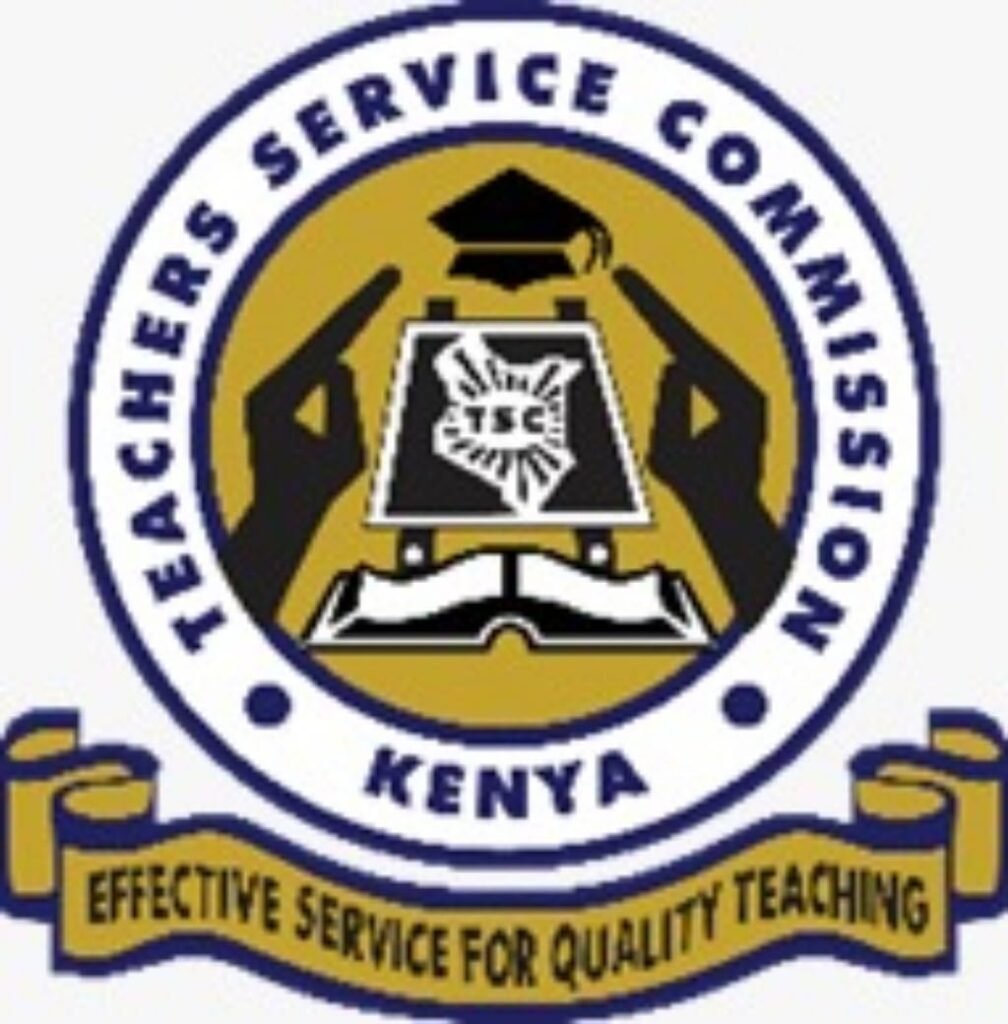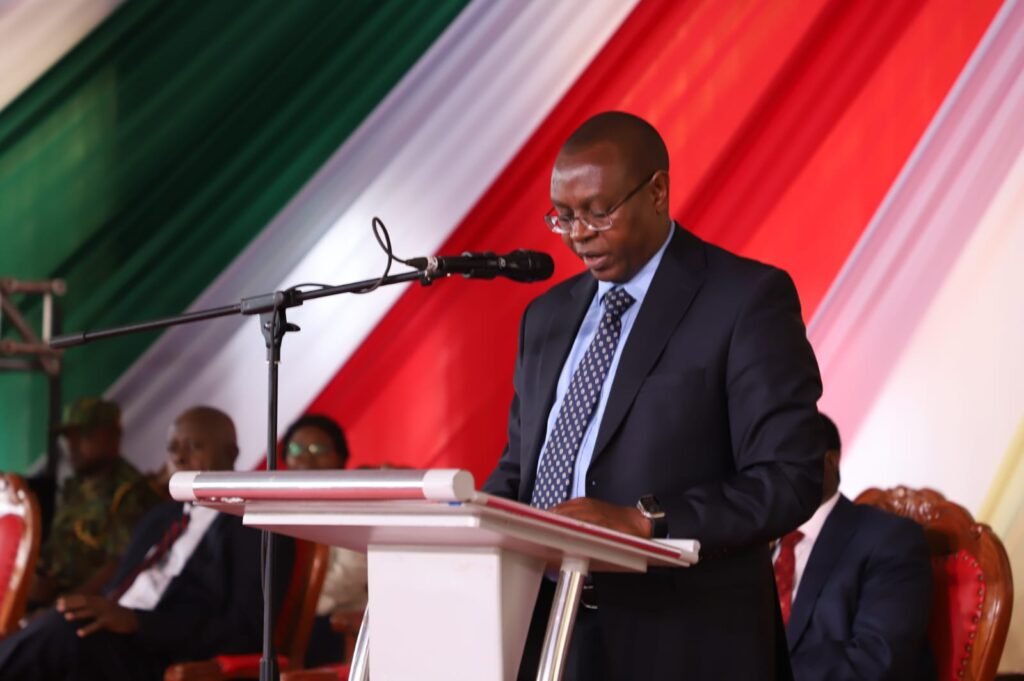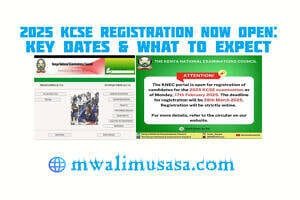TSC Teacher Recruitment: Key Requirements for Candidates Who Re-Sat National Exams

Current CEO of TSC

Introduction to TSC Teacher Recruitment
The Teacher Service Commission (TSC) plays a pivotal role in regulating the teaching profession in Kenya, overseeing the recruitment, training, and professional development of teachers. Established under the 2010 Constitution of Kenya, TSC’s primary objective is to ensure that quality education is provided through the recruitment of competent and qualified teachers. The recruitment process is meticulously structured to attract individuals who meet the requisite academic and professional standards, thereby reinforcing the country’s educational framework.
In Kenya, the significance of national exams cannot be overstated, as they serve as a crucial metric for assessing the academic capabilities of candidates aspiring to join the teaching profession. These exams, which are standardized for various educational levels, are intended to evaluate the knowledge base, critical thinking, and overall preparedness of candidates entering the educational sector. For potential teachers, passing these national exams is not merely an academic requirement; it is a prerequisite that signifies their readiness to contribute effectively to the educational landscape.
The TSC’s recruitment guidelines emphasize the importance of achieving designated academic thresholds in national exams, ensuring that the chosen candidates are adequately equipped to impart knowledge to students. This rigorous selection process is instrumental in maintaining a high standard of education across all levels of learning institutions in Kenya. Candidates who re-sat their national exams often demonstrate a commitment to improving their academic standing, which can enhance their prospects in the competitive recruitment landscape.
Thus, understanding the intricacies of the TSC teacher recruitment process is essential for candidates who have retaken national exams. Familiarizing oneself with the requirements and the significance of these evaluations will empower aspiring teachers to navigate the recruitment process more efficiently and increase their chances of securing a teaching position within the Kenyan education system.
Understanding the National Exams

The national exams play a crucial role in the educational landscape, especially for aspiring teachers in Kenya. These exams assess candidates’ proficiency in essential subjects such as Mathematics, English, and the Sciences. The evaluation serves not only as a measure of knowledge but also as an indicator of a candidate’s readiness to enter the teaching profession.
Typically, the examination schedule is predetermined by the Kenya National Examinations Council (KNEC), causing uncertainty among candidates who feel academic pressure. Ensuring that they are adequately prepared for the exams is paramount. Candidates must familiarize themselves with the exam format, which includes multiple-choice questions, essays, and practical assessments where applicable. Additionally, qualifying grades are set at distinct thresholds depending on the level of teaching one aspires to achieve. For instance, prospective primary school teachers usually require a minimum of a C- in relevant subjects.
Despite the structured nature of the examinations, some candidates may find themselves in a position where they need to re-sit these national exams. Several factors can contribute to this necessity, including inadequate preparation, personal circumstances during the initial exam period, or changes in the curriculum. Re-sitting the national exams provides candidates with a second chance to attain the required grades, which can significantly influence their eligibility for teaching positions.
The implications of the scores obtained in these exams extend beyond immediate employment opportunities. High performance can open doors to better teaching placements and career advancements within the education sector, while poor results may limit prospects. For candidates re-sitting the exams, commitment to improvement is essential, as success in these assessments can pave their path toward a fulfilling career in teaching.
Eligibility Criteria for Teacher Recruitment
The Teacher Service Commission (TSC) sets forth specific eligibility criteria for candidates who are re-sitting national exams, which are integral to the recruitment process for teaching positions. Understanding these requirements is crucial for prospective applicants aiming to enhance their qualifications for a teaching career.
To qualify for recruitment, candidates must meet minimum academic standards that are reflective of the TSC’s commitment to maintaining high educational standards in schools. Typically, candidates must achieve a minimum grade, often set at a C+ or higher in their national exam results, such as the Kenya Certificate of Secondary Education (KCSE). This criterion ensures that teacher recruits possess a solid academic foundation essential for effective teaching.
In cases where candidates are re-sitting their national exams, it is vital to note that TSC has specific policies that may apply. For instance, there may be provisions that allow individuals to re-take examinations a maximum of two times. Furthermore, the TSC encourages candidates who are re-sitting to focus on improving subject-specific grades, especially in core teaching subjects, as these are heavily weighted during the recruitment evaluation process.
Additionally, candidates must possess a recognized teaching qualification, such as a diploma or degree in education, which complements their national exam results. The TSC also emphasizes the importance of professional conduct and ethical standards, expecting candidates to have a clean disciplinary record. This holistic approach to eligibility aims to ensure that only the most prepared and principled individuals enter the teaching profession.
By adhering to these established criteria, candidates enhance their potential to secure employment within the TSC framework, making their aspirations to teach a reality through diligent preparation and commitment to education.
Documentation Required for Application
When applying for teaching positions under the TSC Teacher Recruitment framework, candidates who have re-sat the national exams must ensure they provide a comprehensive set of documentation to support their application. First and foremost, candidates are required to submit their previous examination certificates. These documents typically include results from both the primary and secondary education levels, as well as any relevant national examination results, which serve as a testament to the applicant’s academic qualifications.
In addition to examination certificates, candidates must also furnish valid identity documents. This documentation may consist of a national identification card or a passport, which confirm the applicant’s identity and citizenship status. Ensuring that identity documents are up-to-date and clearly legible is crucial for the verification process within the TSC recruitment framework.
Moreover, candidates should include any relevant certificates obtained from educational institutions. These could encompass diplomas, degrees, or teaching qualifications that further validate the candidate’s suitability for a teaching position. It is advisable that these certificates are certified copies to avoid any doubts regarding their authenticity.
Furthermore, applicants should ensure that all documents submitted are complete and accurate, as any missing or incorrect documentation may lead to disqualification from the recruitment process. It is beneficial to double-check all information and documents prior to submission. Given the competitive nature of the TSC Teacher Recruitment process, thoroughness in documentation serves not only as a form of compliance with application requirements but also as an indication of the candidate’s meticulousness and dedication to securing a teaching role.
Application Process for TSC Recruitment
The application process for Teacher Service Commission (TSC) recruitment is a structured procedure that ensures candidates are adequately qualified, particularly those who are re-sitting national exams. This process is essential for maintaining the quality of education in the teaching profession. The first step for these candidates is to register online through the TSC website. It is imperative to create an account, which requires a valid email address and personal identification details. This online platform serves as a hub for all application-related activities, making it easier to track progress and notifications.
Once registered, candidates must fill out the application form available on the TSC portal. This form will typically request information such as educational background, professional qualifications, and experience. Candidates who are re-sitting national exams are advised to include updated academic records reflecting improvements in their qualifications. It is crucial to be meticulous while filling out the application, as any discrepancies may lead to disqualification.
The TSC has predefined timelines for application submissions, and it is essential for candidates to adhere to these dates to ensure their application is considered. Applicants should keep an eye on announcements related to recruitment openings, which are usually published on the TSC website and other official communication channels. Timeliness is paramount; thus, candidates should aim to complete their applications well before the deadline to avoid last-minute complications.
For a successful application, candidates are encouraged to prepare adequately by reviewing the requirements and ensuring all documentation is in order. Seeking advice from successful applicants or mentors can provide additional insights into enhancing the quality of applications. By following the stipulated guidelines, candidates re-sitting national exams can navigate the TSC recruitment process with greater confidence and efficiency.
Language Proficiency Requirements
In the context of TSC teacher recruitment, language proficiency emerges as a critical criterion, particularly for candidates who have re-sat their national exams. The Teachers Service Commission (TSC) emphasizes the necessity for proficiency in both English and Kiswahili, recognizing that these languages are not only the primary mediums of instruction but also vital for effective communication within the educational framework. Proficiency in English, being a global lingua franca, ensures that teachers can access a broader range of educational resources and methodologies, thereby enhancing the learning experience for their students.
Kiswahili, being Kenya’s national language, holds equal importance in the educational sector. It facilitates better understanding and connection with students from diverse backgrounds, particularly in regions where Kiswahili is widely spoken. The ability to convey lessons clearly in these two languages ensures that candidates can engage students effectively, fostering an inclusive classroom environment where language barriers are minimized. Therefore, candidates are encouraged to prove their competencies through various means, including language proficiency tests or documented educational qualifications that reflect their language skills.
The recruitment process takes these language requirements seriously, as they directly impact a teacher’s ability to deliver content and manage classroom dynamics. Candidates who have re-sat their national exams should not only focus on their subject matter expertise but also refine their language skills to meet the TSC’s language proficiency criteria adequately. This focus can significantly enhance their prospects in the competitive recruitment landscape, where effective oral and written communication is paramount. Understanding and mastering these language requirements thus plays a crucial role in the journey of aspiring teachers to secure positions within the Kenyan education system.
Interview Process for Teacher Candidates
The interview process for candidates who have re-sat national exams is a critical step in the TSC teacher recruitment journey. This phase not only allows the interview panel to assess the qualifications and competencies of the candidates but also enables candidates to present their skills and philosophies in education. Preparation for this interview is vital; candidates should familiarize themselves with the expectations and format of the interview process.
To prepare effectively, candidates should conduct thorough research on the Teaching Service Commission (TSC), its values, and the educational standards in their region. Understanding the mission of the TSC will help candidates align their responses during the interview. Moreover, reviewing common interview questions related to teaching methodologies, classroom management, and engagement strategies is advisable. Candidates may encounter behavioral questions that explore past experiences and how these experiences shape their approach to teaching.
For example, questions may include: “Can you describe a time when you faced a challenge in the classroom and how you overcame it?” or “What instructional strategies do you find most effective for diverse learners?” Practicing responses to these queries can significantly enhance a candidate’s confidence. Additional topics might revolve around current educational trends, technology integration in teaching, and student assessment strategies.
The overall significance of the interview cannot be overemphasized. It is an opportunity for candidates to demonstrate their interpersonal skills, commitment to education, and ability to engage with students and fellow educators. A successful interview can set candidates apart in the competitive landscape of teacher recruitment. Therefore, it is essential to approach this step with seriousness, ensuring that one presents authenticity, professionalism, and a clear vision for contributing positively to the educational environment.
The Impact of Re-Sitting Exams on Career Prospects
Re-sitting national exams is a journey taken by many aspiring educators, and it can significantly impact their career prospects. For candidates seeking to join the Teaching Service Commission (TSC), the results of these examinations serve as a pivotal aspect of their applications. While re-sitting exams can present challenges, it also opens up opportunities for better qualifications and enhanced teaching competencies.
One of the primary challenges candidates might face after re-sitting national exams is the perception of their determination by recruiters. Employers may view candidates who needed to re-sit as less capable or less prepared, which can affect their confidence during the hiring process. However, this viewpoint is evolving. Many recruiters are increasingly recognizing that the experience gained from re-sitting exams demonstrates resilience, ambition, and a commitment to personal and professional improvement, qualities that are invaluable in the teaching profession.
On the flip side, re-sitting exams also provides an opportunity for candidates to attain improved scores that can position them more favorably in the competitive job market. A higher score can enhance an applicant’s chances of securing desirable teaching positions, especially in sought-after subjects or regions. Moreover, the process of preparing for the exams again allows candidates to deepen their subject matter knowledge and develop better study habits, skills that are essential as educators.
In today’s educational landscape, employers often consider not just the grades but also the overall growth of the individual. Candidates can leverage their re-sitting experience as a part of their narrative, showcasing their dedication to becoming better teachers. By effectively communicating their efforts and the lessons learned during this phase, they may even turn perceived obstacles into strengths in their job applications. Hence, with the right approach, re-sitting exams can indeed positively influence career prospects in teaching.
Conclusion and Next Steps for Candidates
For candidates who have re-sat their national exams and are seeking recruitment through the Teachers Service Commission (TSC), understanding the key requirements is crucial. Throughout this blog post, we have outlined the essential qualifications, including passing grades, documentation, and the significance of relevant teaching experience. Aspiring teachers must be aware that meeting these requirements not only paves the way for eligibility but also enhances their profiles in a competitive landscape.
As candidates move forward, it is imperative to gather and organize all necessary documents, including academic certificates, professional recommendations, and any additional credentials that may support their application. Ensuring that all paperwork is correct, complete, and submitted within the stipulated timelines can make a significant difference in the TSC recruitment process. Additionally, staying informed about any updates or changes in the recruitment guidelines enhances the chances of a successful application.
Moreover, candidates are encouraged to engage in professional development and seek out opportunities for further training or workshops that could strengthen their teaching methodologies and classroom management skills. Building a network with experienced educators or joining professional organizations can provide valuable insights and support as candidates prepare for interviews and follow-up assessments.
To stay on track, candidates should frequently visit the official TSC website to access vital resources such as application guidelines, frequently asked questions, and support contacts. Utilizing social media platforms and educational forums can also facilitate connections with fellow applicants, potentially enriching the recruitment experience. By taking these proactive steps, candidates can position themselves favorably for a successful career in education under the TSC.






